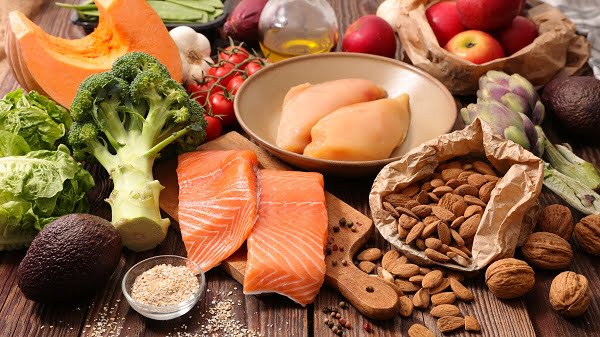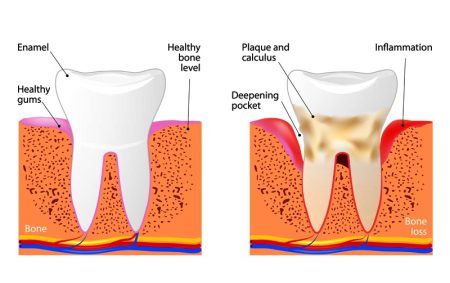
Crohn’s Disease Diet and Nutrition
Good nutrition is essential to good health. For people who are ill, a healthy diet is even more necessary because they are unable to eat and their body often ends up showing signs of nutrition deficiency.
In case of Crohn’s disease, maintaining good nutrition can be a real challenge. In Crohn’s disease, when the small intestine is inflamed, the nutrients are not absorbed from the food making a deficiency of nutrients in the body. This imbalance in the body is called malabsorption and its degree depends on the severity of inflammation and damage in the intestine.
Read about Chrohn’s disease: Causes and Symptoms.
In addition, the intestinal inflammation reduces a person’s appetite, making them not to eat enough to supply nutritional needs. Diarrhea further depletes important nutrients. Summing up all these factors, it is clear that people with a chronic illness such as Crohn’s disease require a more healthy and nutritious diet than healthy people.
There are some foods that trigger the symptoms and some can ease the symptoms. The choice of food is very important and should be done very carefully.
However, these foods are variable. What works best for one person may not work for another. This again makes the choice of foods even more difficult. Here are given some foods and their variants for you to know what to avoid and what to eat.
What food to eat when you have Crohn’s disease? What shouldn’t you eat with Crohn’s disease?
Grains
Grains are common staples used all over the world. Whole grains are considered because they’re high in fiber and nutrients. But fiber cause problems such as diarrhea, abdominal pain and bloating during flare-ups.
A doctor usually recommends a low-fiber diet. A low-fiber and low-residue eating plan is necessary for people affected by Crohn’s disease as it will help to treat small intestinal constriction or acute symptoms. The choice of suitable grains is very important.
What grains to avoid or limit:
- whole wheat bread
- whole wheat pasta
- rye and rye products
- barley
What grains to opt for:
- rice and rice pasta
- potatoes
- corn
- oatmeal
- gluten-free bread
Fruits and vegetables
A diet full of fruits and vegetables can help ease the symptoms. But in some cases, raw fruits make the flare-ups worse – the reason being the same as for whole grains: high-fiber content.
Such fruits and vegetables pose a danger to the Crohn’s digestive tract. Instead of avoiding fruits and vegetables entirely, they can be processed differently and this may reduce their ineffectiveness.
One such processing is baking and steaming. This makes the fruits and veggies more easily digestible. One disadvantage of such processing is that it also removes some of their important nutrients, especially water-soluble vitamins and enzymes. Your doctor and dietician can recommend some ways to prevent any deficiencies.
What fruits and veggies to avoid or limit:
- apples with skins
- broccoli
- cabbage
- cauliflower
- artichokes
What fruits and veggies to opt for:
- applesauce
- steamed or well-cooked vegetables
- carrots
- cucumbers
- bell peppers
- spinach
Protein and meat
In case of Crohn’s flare-ups, protein selections should be based on fat content. Meats with a higher fat content should be avoided as they are difficult to digest. This makes proteins with lower fat a better choice.
What proteins to avoid or limit:
- red meat
- dark meat poultry
What proteins to opt for:
- eggs
- fish
- shellfish
- pork tenderloin
- peanut butter
- white meat poultry
- tofu
Dairy products
Normally, people with Crohn’s are lactose intolerant and may not tolerate dairy very well. And such people are advised to skip dairy products because lactose intolerance tends to coincide with inflammatory bowel diseases.
Lactose can increase the risk of gas or abdominal pain and diarrhea. High-fat dairy (such as butter) is an even greater concern. The fat may aggravate the symptoms already activated.
What dairy products to avoid or limit:
- butter
- full-fat dairy products
What dairy products to opt for:
- soy milk, coconut butter, coconut milk and almond milk
- low-fat fermented dairies like yogurt or kefir
Beverages
Considering the nature of Crohn’s disease, people are advised to drink more fluids. Plain water is the best option. It provides the best form of hydration and is very helpful to ease the side effects of chronic diarrhea.
Alcohol and caffeinated beverages such as coffee and tea increase diarrhea. Soda and carbonated water can increase gas in many people.
What beverages to avoid or limit:
- coffee
- black tea
- soda
- wine, liquor, and beer
What beverages to opt for:
- plain water
- noncaffeinated herbal tea
- coconut water
Spices
Spicy foods are a sort of stimulant that may activate and worsen the symptoms. Overly spicy food is a big no for people with Crohn’s disease.
On the other hand, spices such as turmeric positively affect Crohn’s disease flare-ups.
What spices to avoid or limit:
- black pepper
- cayenne pepper
- chili powder
- jalapenos
- garlic
- white, yellow and purple onions
- paprika
- wasabi
What spices to opt for:
- turmeric
- ginger
- chives or green onions
- cumin
- lemon peel
- fresh herbs
- mustard
Vitamins and Supplements for Chrohn’s disease
Vitamins and supplements are a boon for those having issues with foods. Multivitamins may be one of the best choices for Crohn’s disease. These supplements prevent malnutrition caused by the small intestine (not able to absorb the nutrients and minerals from the foods).
Some vitamins which are essential for a person with Crohn’s disease are given below:
- Vitamin B12
- Vitamin D
- Vitamin A, E, and K
- Folic acid
- Calcium
- Potassium, magnesium, Iron and Zinc
Before starting with any supplement, always talk to the doctor and dietitian to avoid any food related problem.
Some important diet tips to follow during the Chrohn’s disease
- Stay hydrated
- Always prefer several small meals than fewer large ones.
- Take time while eating. Don’t be in a hurry.
- Properly chew the food. It will help in the digestion of food well.
- Don’t drink water during the meals.
- Always prefer drinking water half an hour before the meal.
- In between Crohn’s flare-ups, if you’re feeling better, eat normally and enjoy your food.
- Prefer boiled food than fried food.
- Before starting any diet plan, always talk to a nutritionist.
- Never forget to mention to nutritionist the foods that are allergic to you.
- Be in regular contact with the doctor during the whole process.






